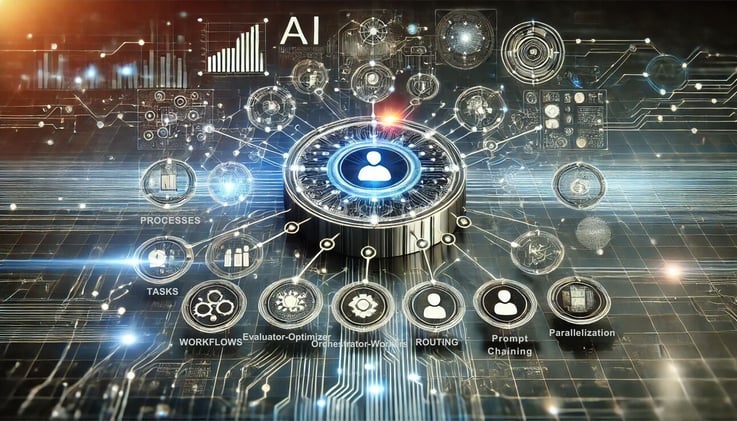In recent decades, we’ve witnessed unprecedented advancements in technology, transforming various industries and leaving a lasting impact on society. One sector poised to undergo significant transformation is agriculture. Artificial intelligence (AI) has the potential to revolutionize farming practices, leading to increased productivity, efficiency, and sustainability.
Precision Farming
Precision farming utilizes AI algorithms and data from multiple sources, including satellite imagery, drones, and sensors, to optimize resource utilization such as water, fertilizers, and pesticides. This approach ensures that the correct amount of resources is applied in the right place at the right time, reducing waste and environmental impact while enhancing crop yields.
- Optimized Resource Allocation: AI-powered precision farming enables farmers to allocate resources efficiently, minimizing waste and optimizing crop growth.
- Data-Driven Decision Making: By leveraging data from various sources, farmers can make informed decisions about planting, irrigation, and harvesting, leading to more efficient operations.
- Reducing Environmental Impact: Precision farming helps reduce the environmental impact of agriculture by minimizing resource consumption and waste.
Crop Monitoring and Disease Detection
AI-powered drone and satellite imagery, combined with machine learning algorithms, can monitor crop health, identify diseases, and detect pests in real-time. Early detection and intervention can save farmers valuable time and resources, leading to healthier crops and increased productivity.
- Early Detection: AI-powered monitoring systems enable early detection of diseases and pests, allowing farmers to take timely action and prevent further damage.
- Precision Agriculture: Machine learning algorithms can analyze data from various sources to provide insights on crop health, enabling farmers to make informed decisions about resource allocation.
- Reducing Chemical Use: By identifying disease-prone areas, farmers can apply targeted treatments, reducing the need for broad-spectrum chemicals and minimizing environmental impact.
Automated Farming Equipment
Self-driving tractors, harvesters, and other farm equipment are becoming increasingly common, thanks to AI advancements. Autonomous machinery can work tirelessly around the clock, optimizing field operations and reducing the need for manual labor.
- Increased Efficiency: Automated farming equipment enables 24/7 operation, increasing productivity and reducing labor costs.
- Reducing Labor Costs: By automating repetitive tasks, farmers can reduce labor costs and allocate resources more efficiently.
- Improved Safety: Autonomous machinery reduces the risk of accidents and injuries associated with manual farm operations.
Smart Greenhouses
AI technology can be used to create smart greenhouses, which optimize the growing environment for plants by monitoring and adjusting temperature, humidity, and lighting conditions. By using AI to create the ideal conditions for growth, smart greenhouses can maximize yield and minimize resource consumption.
- Optimized Growing Conditions: Smart greenhouses utilize AI to monitor and adjust environmental factors, ensuring optimal growing conditions for crops.
- Increased Yield: By creating an ideal environment for plant growth, smart greenhouses can increase crop yields and minimize waste.
- Reducing Resource Consumption: AI-powered smart greenhouses optimize resource utilization, reducing energy consumption and minimizing environmental impact.
Farm Management Software
AI-powered farm management software can analyze historical and real-time data to provide farmers with valuable insights and recommendations. These tools can help farmers make more informed decisions about planting, irrigation, and harvesting, leading to more efficient and profitable operations.
- Data-Driven Decision Making: Farm management software enables farmers to make informed decisions by analyzing data from various sources.
- Increased Efficiency: By optimizing resource allocation and streamlining operations, farm management software can increase productivity and reduce costs.
- Improved Profitability: AI-powered farm management software helps farmers maximize yields and minimize waste, leading to increased profitability.
Supply Chain Optimization
AI can also help optimize the agricultural supply chain by predicting demand, streamlining logistics, and reducing waste. This can lead to increased efficiency and cost savings for both farmers and consumers.
- Predictive Analytics: AI-powered predictive analytics enable suppliers to forecast demand, ensuring that resources are allocated efficiently.
- Streamlined Logistics: AI-driven supply chain optimization reduces logistical complexities, minimizing transportation costs and environmental impact.
- Reducing Waste: By analyzing data from various sources, suppliers can identify areas of waste and optimize resource utilization.
Sustainable Agriculture
AI has the potential to contribute significantly to the development of more sustainable agricultural practices. By optimizing resource use, reducing waste, and minimizing environmental impact, AI can play a vital role in promoting a more sustainable and eco-friendly future for agriculture.
- Reducing Environmental Impact: AI-powered precision farming and smart greenhouses minimize resource consumption and waste, reducing environmental impact.
- Increasing Efficiency: AI-driven supply chain optimization reduces logistical complexities, minimizing transportation costs and environmental impact.
- Promoting Sustainable Practices: By optimizing resource use and reducing waste, AI can promote sustainable agricultural practices and contribute to a more eco-friendly future.
Conclusion
In conclusion, AI has the potential to revolutionize the agriculture industry, offering a range of benefits from increased productivity and efficiency to more sustainable farming practices. As technology continues to advance, we can expect to see even more innovative solutions that will help shape the future of farming for generations to come.



